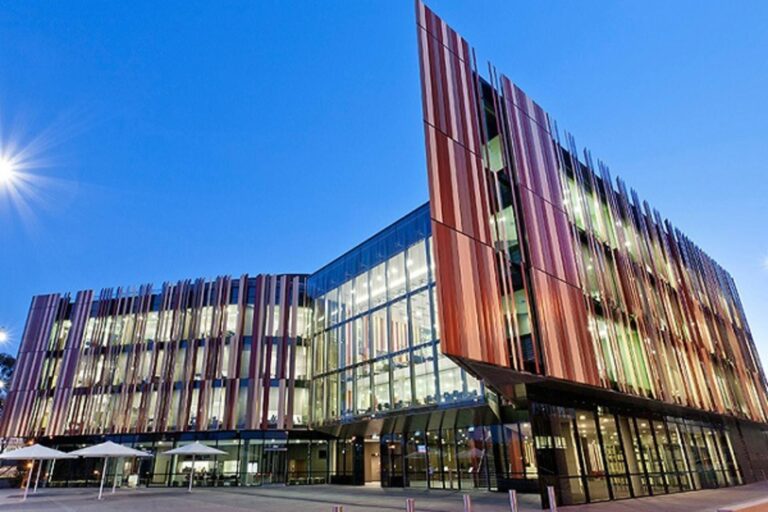Modern Greek at tertiary level has suffered another setback as Macquarie University announced plans to abandon Modern Greek in 2024.
This marks a change in university policy, as a whole list of languages are expected to be removed – Modern Greek, Croatian, German, Italian and Russian – as part of a move away from languages and cultures towards a discipline of global studies.
Foundation president Theophilus Premetis said the university had not made any concrete decisions but that it was a “great concern.”
“We have been working for almost 40 years and have been very successful in promoting Greek and increasing enrollment…we are now trying to reverse that decision,” Premetis said. Neos Cosmos.
He said they had 57 registrations thanks to handling the COVID-19 issue and that “we can’t forget three years ago when they tried to demote us to a minor instead of a diploma and a major, which was later canceled.”
“We are deeply concerned about the future of modern Greek studies at Macquarie University and will explore all options to maintain its presence there,” Premetis said.
In Melbourne, as noted in Neos Cosmos In 2022, Latrobe University partnered with the Greek community, the Greek Archdiocese of Australia and the Victorian Government to support the Modern Greek Language Program.
These actions have led to a significant increase in the number of students studying Modern Greek at university: “since 2020, Modern Greek enrollments have increased by more than 20 percent, and that is why we are delighted to announce that we will continue to study modern Greek. with the Modern Greek curriculum,” said Professor John Dewar, Vice-Chancellor of La Trobe University. Neos Cosmos in 2022.
According to the former director of the Center for Research and Hellenic Studies at Latrobe University, Professor Anastasios Tamis, more leadership was needed in the communities.
“At the higher level, when it comes to Greek studies, we build the roof without paying attention to the foundation,” Professor Tamis said. Neos Cosmos.
According to the professor, the absence of a large cohort of middle-class migrants in the mass post-war migration, and then the emphasis on professional advancement and the integration of the second generation, undermined the Greek studies at tertiary level.
“This first generation of Greek immigrants, mostly from the working class and having received only a primary education level, sacrificed a lot to ensure the education of their children.
“Then, for the second generation, their primary goal was not to retain the Greek language or identity but to excel and consolidate within the mainstream Australian community.
Professor Tamis said that “the main goal of the second generation is to succeed professionally, economically and socially within the dominant society.”
He emphasized the need for community leaders to pay more attention to Greek studies at the preschool, primary and secondary levels.
“Greek community leaders have never directed our community to focus on primary or preschool education, where we can create bilingual schools,” Professor Tamis said.
Greek communities should have built primary schools and preschools “entirely in Greek to introduce language immersion courses teaching Greek from an early age,” Professor Tamis said.
He added that 60 percent of students in weekend and after-hours Greek schools “have never heard Greek spoken at home” and that two of three ethnic Greek homes do not speak Greek.

“To keep Greek at a higher level, we need to increase the frequency and duration of teaching to learn a language like Greek.
“You need 2,600 hours of contact teaching, but we currently only offer about 600 hours and we teach Greek for between 45 minutes and an hour and a half once a week. So you can’t learn a language at this frequency,” Professor Tamis said. Neos Cosmos.
Neos Cosmos reported this week that a community effort was planned to support the University of Sydney’s Modern Greek department, “with greater emphasis on trying to assist the study of Modern Greek at tertiary level”.
This comes at a crucial time, as the fate of modern Greek studies at Macquarie University puts the question of preserving these departments at the senior level back in the spotlight.
Professor Anthony Dracopoulos, Acting Director of the Department of Modern Greek and Byzantine Studies, said Neos Cosmos that Modern Greek “needs financial support, not only in Sydney but throughout Australia”.
He said Modern Greek at the tertiary level achieves two things: it makes students qualified to teach the language at the secondary level and contributes to research into modern Greek culture.
“Modern Greece participates here and now in the cultural production of the West.
“We have great poets, great musicians, great cinema.
“We need to study this at a high level to improve our understanding of what it means to participate in Greek culture,” he said.
Dr Dracopoulos said the question should not be why we should have modern Greek in universities, but how to preserve it.
The academic cited the recent situation at Macquarie University as evidence of the risk against Modern Greek at tertiary level.
For him, Modern Greek must attract more foreign students who generate greater income for universities.
Institutionally funded Greek departments at Harvard University, King’s College London, and the University of Michigan.
He added that smaller departments can sometimes be more advantageous in terms of providing better service to students because they have more time to dedicate to them.


